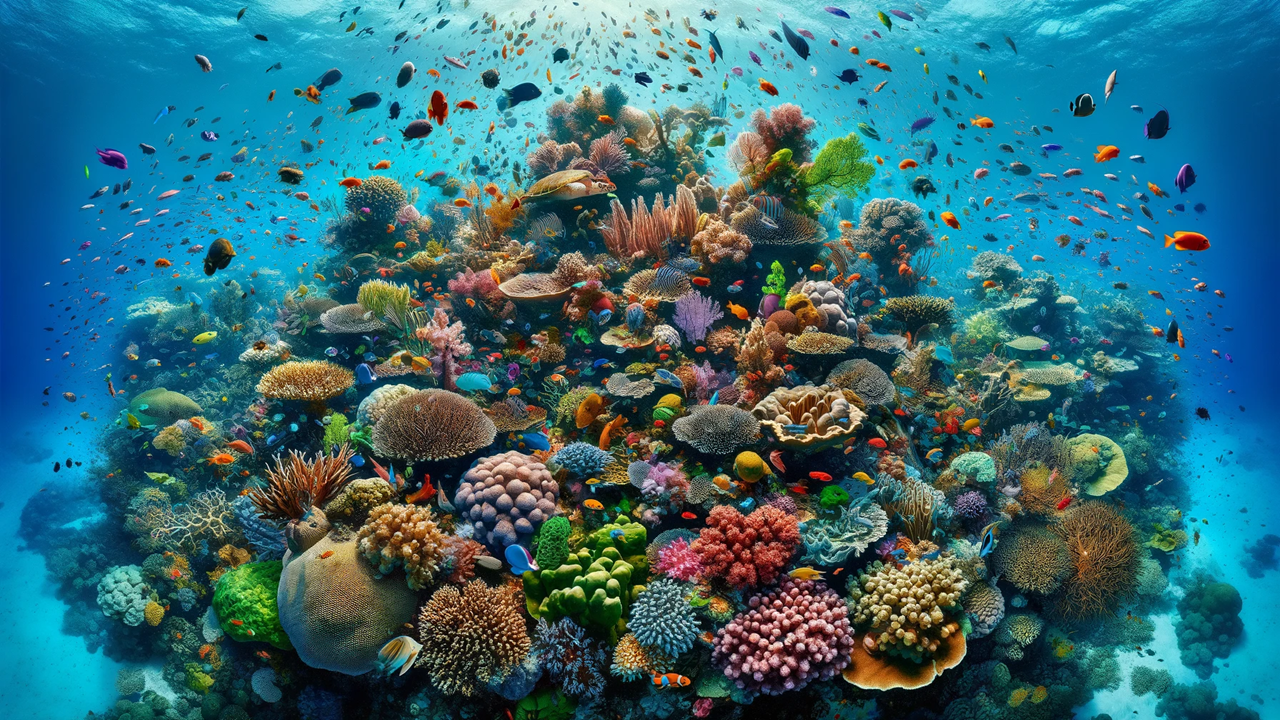Investing in Blue: Indonesia's Bold Move to Save Coral Reefs with Innovative Bond
The Indonesia Coral Bond, an innovative financing instrument launched by the World Bank, seeks to enhance ocean biodiversity and manage over 5 million hectares of marine protected areas (MPAs) in Indonesia. By leveraging private capital for environmental outcomes, this outcome-based bond, developed in collaboration with the Government of Indonesia, IUCN, GEF, and BNP Paribas, aims to improve coral reef health and economic benefits from fisheries and tourism.

In a groundbreaking move to preserve its marine biodiversity, Indonesia, in collaboration with the World Bank, has launched the Indonesia Coral Bond. This innovative financing instrument aims to enhance the health and management of over 5 million hectares of marine protected areas (MPAs) in the country, leveraging private capital for significant environmental outcomes.
A New Approach to Conservation Financing
The Indonesia Coral Bond is the World Bank’s first outcome-based financing instrument targeting ocean biodiversity. This initiative, developed with the Government of Indonesia, the International Union for Conservation of Nature (IUCN), the Global Environment Facility (GEF), and BNP Paribas, represents a novel approach to conservation financing. Investors who purchase the bond agree to forego regular coupon payments. Instead, these funds are channeled towards conservation initiatives within four critical MPAs in Indonesia.
The bond's success is gauged by specific targets set for coral reef health and the effectiveness of their management. If these targets are met, investors will receive their principal redemption along with a successful payment at maturity, funded by a performance-based grant from BNP Paribas and potentially the GEF. This innovative structure shifts the project risks to capital market investors while allowing donors to fund conservation outcomes.
Focus Areas: Indonesia’s Rich Marine Biodiversity
Indonesia is home to 16% of the world’s coral reefs and 17% of the world’s blue carbon reservoir, making it one of the most biodiverse marine nations globally. However, one-third of these coral reefs are currently in poor condition. The Coral Bond focuses on four priority MPAs within the Coral Triangle ecoregion, namely Raja Ampat, Savu Sea, and Alor. These areas are part of the Birds Head and Sunda Banda Seascapes, which are renowned for their extensive marine biodiversity.
The Birds Head Seascape, for instance, boasts the world’s greatest marine biodiversity, with 1,600 species of reef fish and over 550 species of corals. The Sunda Banda Seascape is another priority conservation region, home to over three-quarters of known coral species and serving as an important cetacean migration corridor.
Targeted Conservation Outcomes
The Indonesia Coral Bond aims to achieve measurable conservation outcomes in the selected MPAs. The foregone coupons from the bond will be utilized to secure these outcomes, which include achieving IUCN Green List certification and maintaining or increasing live coral cover and coral reef fish biomass.
The IUCN Green List is a sustainability standard that recognizes effectively managed and governed protected areas achieving their conservation outcomes. This provides a verified, results-oriented model for MPA financing. Additionally, tracking biophysical impact metrics such as coral reef fish biomass and live coral cover will demonstrate the impact of management measures on coral reef health.
These metrics are highly relevant to the coral reef environment and are recommended by global conservation bodies, including the International Coral Reef Initiative, the Global Fund for Coral Reefs, and the Global Coral Reef Monitoring Network.
Unlocking Private Finance for Marine Conservation
The Indonesia Coral Bond is poised to make a significant contribution towards closing the financing gap for Sustainable Development Goal 14 (Life Below Water). By leveraging the World Bank’s experience with innovative financing instruments, such as the Plastic Waste Reduction-Linked Bond and the Wildlife Conservation Bond, this initiative provides a scalable model for using private finance to achieve substantial conservation outcomes.
The bond not only aligns with global commitments to protect marine biodiversity but also ensures sustainable benefits for Indonesia’s economy and environment. Coral reefs are crucial for Indonesia’s economy, providing direct economic contributions from fisheries and tourism estimated at USD 3.3 billion annually. They also offer additional benefits such as improved nutrition and climate change adaptation and mitigation.
Vision for the Future
The Indonesia Coral Bond represents a pioneering step in conservation financing, demonstrating how innovative financial instruments can be used to support environmental sustainability. By focusing on measurable outcomes and leveraging private capital, this initiative paves the way for a new era of marine conservation, ensuring that Indonesia’s rich marine biodiversity is preserved for future generations.
As the world looks for ways to address the pressing challenges of climate change and biodiversity loss, the Indonesia Coral Bond offers a promising solution that combines economic and environmental benefits. This innovative approach not only highlights the importance of private sector involvement in conservation efforts but also sets a precedent for future initiatives aimed at protecting our planet’s invaluable natural resources.
- FIRST PUBLISHED IN:
- Devdiscourse










